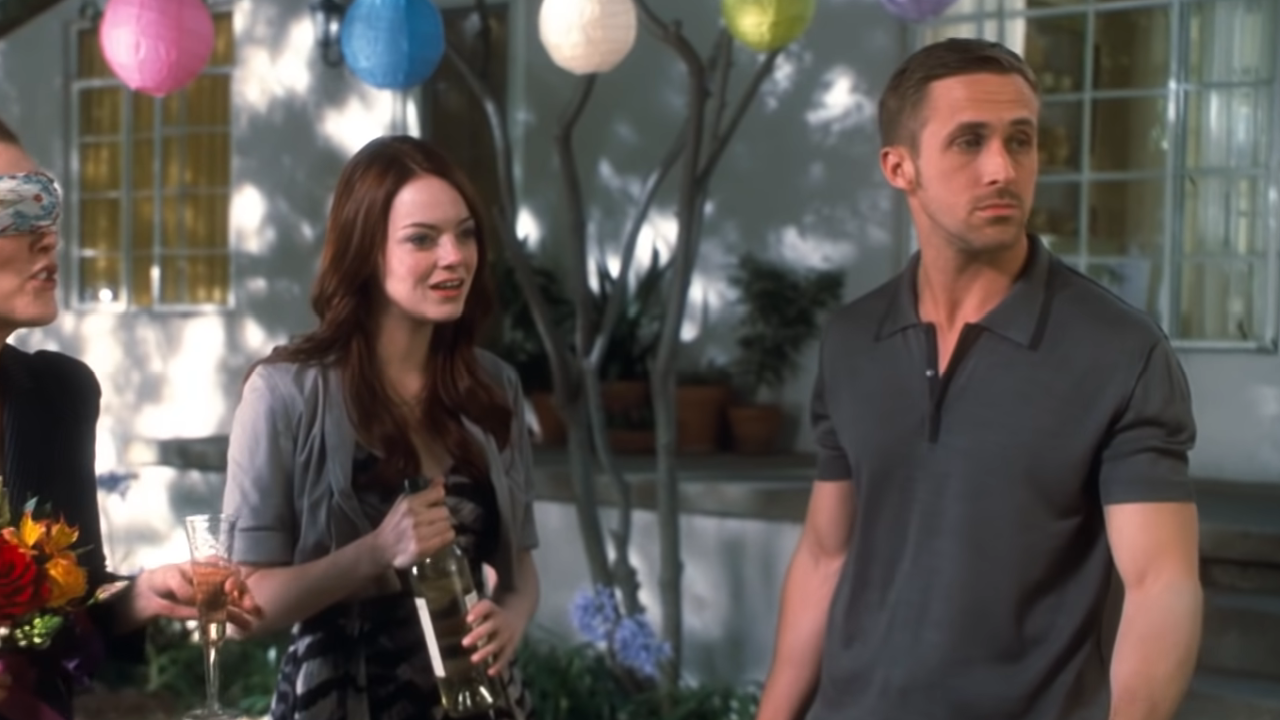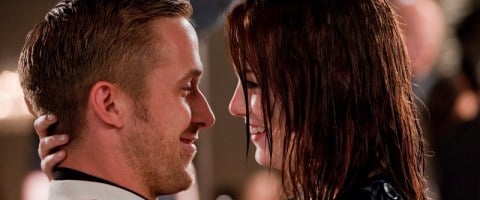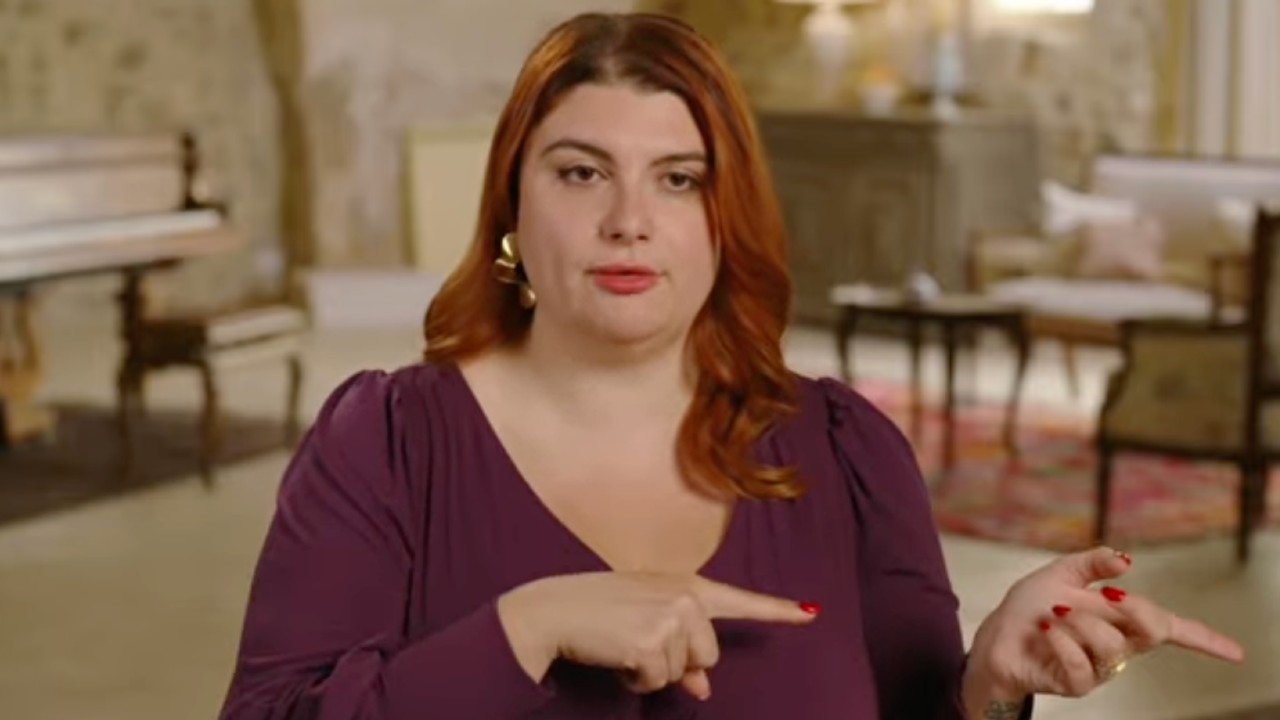Interview: Glenn Ficarra And John Requa Make A Summer Movie For Grown-Ups With Crazy Stupid Love

Glenn Ficarra and John Requa's second film as a directing duo is hitting theaters just seven months after the release of their first film together, but they haven't been nearly as busy as that timing might suggest. After working together on screenplays like Bad Santa and Bad News Bears they teamed up to direct I Love You Phillip Morris, a dark comedy about a romance between two prisoners played by Jim Carrey and Ewan McGregor. They shot the film in spring 2008, premiered it at Sundance in early 2009, and then watched their movie languish unreleased until their financier finally took it away from the distributor and found it a better home.
The road is a lot easier for their second film, Crazy Stupid Love, a Warner Bros. production that hit a fast track thanks to the schedule of star Steve Carell, and was wrapped with a release date not even a year after Requa and Ficarra came on board. A complicated comedy of manners, errors and love written by Cars screenwriter Dan Fogelman, Crazy Stupid Love stars Carell as a man making his way through life after a surprise separation from his wife, who has been having an affair but also has clear regrets. Hopeless on the dating scene, Carell is taken in by the ladies man played by Ryan Gosling, who teaches him both how to pick up women and finally respect himself again. Julianne Moore, Emma Stone, Kevin Bacon, Marisa Tomei and Josh Groban all round out the large cast, but Requa and Ficarra say it wasn't hard finding movie stars to come on board a movie with Carell-- it's the music that was the real problem.
Read below for the saga of how they snagged songs like the Talking Heads' "This Must Be The Place" and "Time of My Life" from Dirty Dancing, plus their experience letting Fogelman into their shared brain of collaboration, and why it's still worth making summer movies for grown-ups. Crazy Stupid Love opens this Friday.
This is a movie for grown-ups, and nobody makes movies for grown-ups anymore. Your last movie I Love You Phillip Morris spent such a long time getting released, and the easy thing to do now would be cash in and make the next Hangover knockoff, but instead you jumped into this entire other challenge. Do you enjoy that challenge?
Glenn: It appealed to us definitely, because this movies doesn't get made, and that's sad.
John: This kind of script comes along in Hollywood once a decade. It's so intelligent, and so funny, and so relatable, and such real issues. It's such a fascinating and entertaining way. It just spoke to us.
Steve Carell was attached to star and produce when you guys came on. When you guys are building a movie around one actor, what's the challenge in casting and just imagining the movie?
Your Daily Blend of Entertainment News
Glenn: First you've got to deal with the fact that you can't work with the hundreds of thousands of people that Steve has already slept with. [Laughs] No, no-- the nice part is that everybody wants to work with Steve, because they've all heard how wonderful he is to work with. It gives you your pick of the litter. It was very organic the way it all happened. We agreed early on the priority was finding the kids, and that took probably the longest time. Julianne was the big one to come on next, and once we had Julianne then everybody wants in.
So you cast the kids before you knew which other adults they'd be interacting with?
John: Well there's some kids we couldn't use because they couldn't be Steve's son. We lucked out because this kid Jonah Bobo is just great, and I think he looks like Steve.
Glenn: It all happened really fast, because Steve had this window to do the movie because he was still on The Office. The script was purchased at Christmas, right before Christmas, and we were in pre-production by March or April. Within two months, three months we put the movie together, and there wasn't a lot of time to change things.

You guys are working with someone else's material for the first time. On a day to day basis, when you had to cut a line or shorten a scene, was there hesitation to do that with someone else's work?
John: He [writer Dan Fogelman] was right there.
Glenn: He was there every day. We told Dan we were going to be the directors we never had as writers. You're going to be there every day, you're going to be part of the team and we'll create together. A lot of directors keep writers away because the writers know the script better than anybody, obviously they do, and they have certain intents. But a lot of people would be surprised to know that writers are pretty flexible when it comes to their work.
And obviously you guys knew that.
Glenn: Yeah. Because we're a team we're used to collaborating and compromising, in the good sense. Bringing in another person was not threatening in any way.
But you guys have developed this shared brain in your years of working together. Is it hard to expand that to a third person?
John: No, it was effortless. We were instantly best friends, it was the weirdest thing. Now we don't make a move without letting him in. We really admire and respect each other, and that happened quickly. It's been great, one of the highlights of my career, our relationship with Dan.
The story isn't hugely complicated, but there are a lot of pieces and characters to keep track of. What kind of day to day stuff could you alter?
Glenn: You know, making a joke fly a little better. We had issues with ratings, so alternate takes. And we encouraged improv so long as it was on point.
John: There were scenes in the movie that there was no dialogue written for, just a few. It was just characters interacting. We figured we just pointed the cameras at them and figured it out.
Such as?
John: The scene where they're hanging out in the bar and talking about the Muppets, that was completely improvised and we just rolled on them. Sometimes we'd shoot a scene and then go back so they could fly off book if they wanted to.
What about Emma and Ryan's night together? That felt especially natural.
Glenn: The stuff in the bed was largely improvved. It was a long night, we just shot. They have such natural chemistry that we just wanted to capture that. John: The entire scene as in the script is in the movie, and in addition to that there's additional stuff. You rarely throw out the script, but you can add to it. We just want to have a bunch of ammo in the editing room. We want you to believe that these two people are falling in love.
Glenn: We don't have a lot of time. It's one night, and they have to fall in love, and you have to believe it the next time you see them. Originally in the script we had a montage in there, the passage of time, and we got to lose all that because that was so strong.

There's a ton of music in this, and a lot of recognizable and presumably expensive music. Did you guys just go all out on the music budget?
Glenn: Yeah, Warner was great, they just blank checked us.
What made you guys want to have those big recognizable songs?
Glenn: It's usually just the right song for the right scene. We had a voice for the bar, with the electronic music-- then you have all sorts of pitfalls there because of sampling. Just like the production design, the music had a design to it.
John: And it took forever to work out. It wasn't like all at once we decided we were going in one direction. We nearly killed our music editor. Jason Ruder, who is the future of Hollywood, and we worked and worked and worked and gradually got there.
Glenn: You would never suspect that that song that you heard in the bar was heard by three musicologists listening for samples. It's a process.
Staff Writer at CinemaBlend

